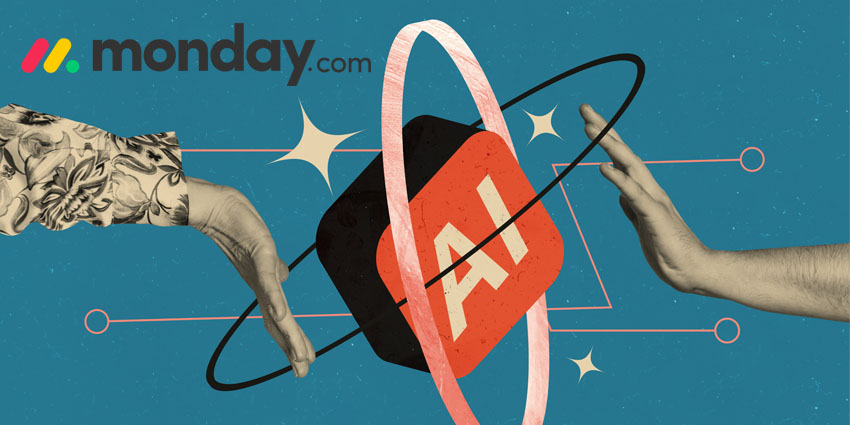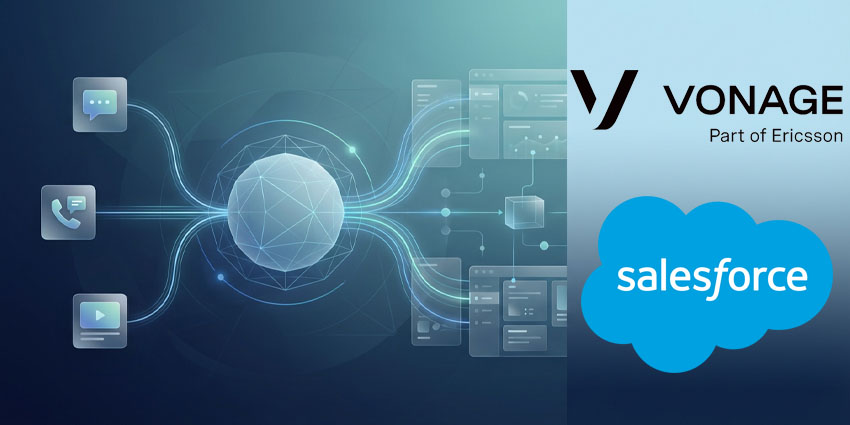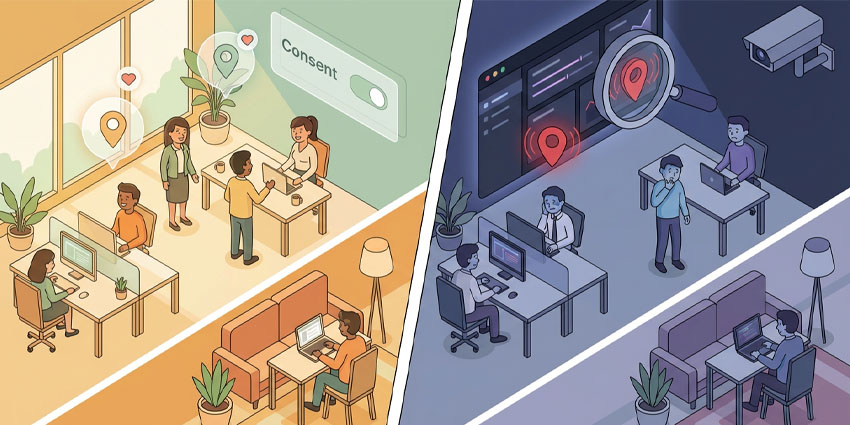Every major technological revolution ushering in game-changing possibilities will also feature growing pains—it’s just the inevitability of seismic change.
One such growing pain impacting AI’s sweeping shift across practically every industry and enterprise is an emerging disconnect between those investing heavily in AI and those deploying and using it. There is understandable C-Suite excitement over AI’s promise as a tool to significantly boost productivity and cut costs. However, there have been challenges around implementation and adoption as IT leaders and users are still grappling with the most effective and efficient use cases for the tech.
How is it best to bridge this divide? Potentially, by involving employees in their organisation’s AI strategy and processes so that they feel confident and engaged.
- How Will monday.com’s AI Vision And ‘service’ Platform Empower Businesses?
- The Ultimate monday.com Guide: Everything You Need to Know
Engagement, Engagement, Engagement
Last month, monday.com published research which found that over two-thirds of UK workers want a greater say in their company’s direction. The work management company’s survey of over 520 UK employees revealed that 67 percent want more significant influence over their company’s direction, while half seek increased transparency regarding workplace and technological changes.
Additionally, while three-fourths of respondents say they’re open to using AI tools, 38 percent expressed concern that AI could replace aspects of their work they find fulfilling, further highlighting the importance of balancing technological innovation with employee happiness.
How can businesses strike the right balance between AI-driven efficiency and preserving job satisfaction?

“The key is to position AI as a collaborator rather than a competitor,” Ben Barnett, Regional Vice President of UK&I at monday.com, told UC Today. This means implementing AI to remove bottlenecks – automating admin-heavy tasks or surfacing insights faster – so employees can spend more time on strategic, creative, or high-impact work.”
“Businesses that engage their teams early in AI adoption offer proper training, and clearly demonstrate how AI enhances their skills can create a workplace where efficiency and job satisfaction naturally complement each other.”
While AI adoption is growing, monday.com’s research highlights areas where employees think the technology needs improvement, especially around automation, resource management and security.
There are clear areas where companies can prioritise when deploying AI across workflows, and Barnett stresses that the most effective AI strategies address real pain points.
“If automation is too rigid or disruptive, employees will resist it – so businesses should focus on AI that enhances existing workflows rather than overhauling them,” Barnett said. “In resource management, AI should offer smart recommendations without overriding human judgment.”
“To ensure adoption and effectiveness, teams should be actively involved in shaping and implementing AI, so it aligns with their actual needs,” Barnett continued. “And when it comes to security, companies must be transparent, compliant, and proactive in protecting both company and employee data.”
The Importance of Transparency
A coherent and effective strategy around AI is one thing, but it doesn’t necessarily solve the root cause of workers feeling unengaged by the decision-making process. monday.com’s research suggests that more than half of UK employees (53 percent) want better communication around workplace and technological change. How can companies involve employees in AI decision-making to build trust and transparency?
“Companies need to clearly communicate why AI is being introduced, how it will help employees, and what guardrails are in place,” Barnett said. “Involving employees through pilot programmes, workshops, and open feedback channels ensures they have a say in how AI is integrated. The more teams understand AI’s benefits and feel heard in the process, the more they’ll trust and embrace it.”
We are still at the (relative) beginning of the AI revolution, and as AI continues to evolve, fresh challenges and opportunities will emerge. What issues might businesses face in integrating AI into the workplace as the tech matures? And how can they overcome them while keeping employees engaged and motivated?
“One challenge is bridging the gap between AI’s potential and employees’ confidence in using it,” Barnett suggested. “Like any new technology, AI adoption can come with hesitation, so it’s crucial to provide clear, real-world examples of how it meets everyday needs.”
“Many businesses implement AI without fully equipping their teams with the skills or understanding needed to maximise its value,” he added. “Overcoming this requires a mix of education, change management, and practical demonstrations that position AI as a tool for progress.”
Another challenge Barnett proposed is prioritising ethical AI use to ensure fairness, data privacy, and security remain top priorities.
“Companies that succeed will be those that introduce AI thoughtfully,” Barnett said. “At the same time, AI should empower employees by shifting their focus to higher-impact work. By supporting teams through the transition, demonstrating tangible benefits, and enabling employees to apply their creativity in meaningful ways, businesses can foster trust in AI and unlock its full potential.”
How monday.com Tries To Fulfil Its Own AI Manifesto
monday.com’s AI philosophy is that it’s a way to enhance human potential rather than replace it. In what way does monday.com help companies implement AI in a way that empowers employees?
“Our approach is focused on integrating AI into the platform in a way that feels natural, enabling teams to make faster decisions, automate processes, and gain insights without disrupting workflows or adding complexity,” Barnett asserted.
“For example, our AI Blocks let teams customise actions like extracting key information from documents, categorising tasks, and analysing trends – all within their existing processes,” he continued. “AI-powered automations handle routine approvals, data entry, and follow-ups, reducing manual effort. And with monday Expert, our new AI agent, users will get real-time guidance on navigating the platform, setting up workflows, and troubleshooting challenges.”
“The key is making AI accessible, easy to adopt, and flexible enough for teams to scale at their own pace. We’ve already seen millions of AI-powered actions on the platform, proving that when AI is seamlessly integrated, it naturally becomes part of how people work.”







